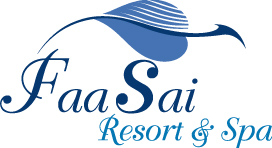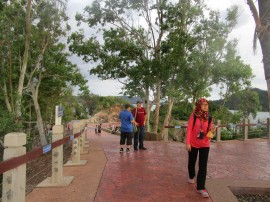Beyond Borders: Rethink ASEAN Ecotourism
08:54pm, Wednesday 19 April 2017
In addition to its natural beauties, Southeast Asia has warm weather, cultural diversity, amazing eco-systems, easy accessibility and affordability. Little wonder that it is one of the most popular holiday destinations in the world. It is about to get even more popular, as this year it will join together in a new common market, the ASEAN Economic Community. This means more roads and rail networks will go in and (in time) a single visa will be available for travel within the region. Obviously this will attract more tourists and this may disappoint ecotravelers who come to Southeast Asia because they are looking for authentic local experiences in quiet and unspoilt destinations.
It is heartening therefore to see that ASEAN is embracing the concept of ecotourism and Thailand's Ministry of Tourism and Sport, last year hosted a workshop for regional tourism leaders called Beyond Borders: Rethink ASEAN Ecotourism.
The workshop was supported by the Ministry of Natural Resources and Environment, Designated Area for Sustainable Tourism (DASTA) in Thailand and Bangkok Metropolitan Administration (BMA). The Thailand Community Based Tourism Institute (CBT I) designed and facilitated the programme, with Jaranya Daengnoi and Peter Richards the lead facilitators.
The programme was very practical and in addition to talks by industry leaders there were field trips to ecotourism operations in south eastern Thailand.
The field trips were to the Jumrung Community, Rayong Province, a community initiative which offers visitors a chance to experience eco, agro and educational tourism; Huai Raeng Community in Trat province, a community-based initiative which offers boat trips to mangroves and homestay; and Faasai Resort and Spa, where we offered hands-on experience in our organic farm and ″forest cuisine″ - dishes based on locally-grown herbs such as Siamese cardamom.
All the places have a focus on agricultural tourism, supporting local communities, learning and sharing, and supporting cottage industries. There is also a unique Thai element to all three as they emphasize Thailand's concept of the ″Sufficiency Economy.″ This is not merely sustainability in the commonly understood meaning, but stress ethical values and sufficiency - living within your means, sharing resources, living as part of a community and cultivating resilience to external shocks. This draws upon Buddhist traditions of kindness, tolerance and simplicity and the concept was developed by His Majesty King Bhumibol Adulyadej.
Religion is an important part of Southeast Asian culture, and there is much common ground between Buddhism, Islam and Christianity, which have many devotees in the region. This was certainly evident in the people attending the workshop. When I spoke about values-based tourism from a Buddhist perspective, the Muslim members of the group were very receptive and enthusiastic about the idea and talked about their own heritage and experiences as we visited the sacred Bodhi tree at the resort.
While the group discovered many commonalities between eco-tourism practitioners in Southeast Asia, they also shared knowledge about how to develop successful ecotourism ventures. Ideas included creating memorable experiences, designing special packages to attract long-stay travelers, students or special interest groups, using online media effectively through story-telling and developing social networks and communities of interest.
Thankfully, governments are coming to appreciate the value of this kind of small-scale tourism. It attracts travelers wanting to get off the beaten track and have a more authentic experience while it is low-impact and ensures that the money spent by tourism mostly remains in the local community.
Mr Pasit Poomchusri, the Deputy Director-General of the Department of Tourism in Thailand, led the workshop, which followed on from previous initiatives aimed at capacity-building within the Thailand tourism industry. He sees good ecotourism potential in Thailand's coastal eastern provinces, Rayong, Trat and Chanthaburi. These destinations offer a good alternative to travelers. They are only a few hours' drive from Bangkok and have many resources such as sea and mountains, marine and forest parks, biodiversity, strong local communities, delicious food and agri-tourism.
As a local operator, I find it very encouraging that the Thai government is giving such support and encouragement to small eco-enterprises and I feel enthusiastic about the possibilities for ASEAN operators to work together in the area of ecotourism.
by Bronwen Evans, co-owner Faasai Resort and Spa









